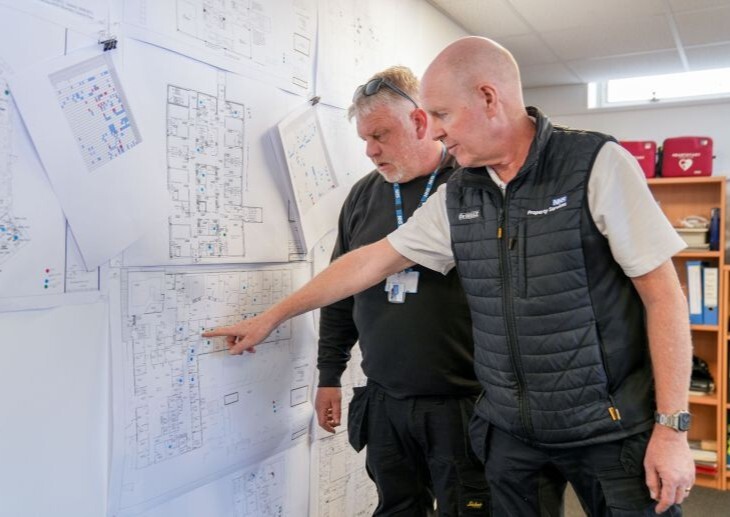ICSs are in the frontline when it comes to tackling health inequalities. The recently published Hewitt Review holds them to this task and highlights some inspirational examples. Saša Janković reports
Improving population health and tackling health inequalities is a complex task, and while the NHS provides universal access to care this does not mean it always manages to be equal – giving everyone the same resources, regardless of their background or circumstances – or equitable – providing care catered towards an individual or group to help them achieve the same health outcome as someone in another group.
In November 2022 The Rt Hon Patricia Hewitt was commissioned to lead an independent review of integrated care systems (ICSs) in England, looking at the NHS targets and priorities for which integrated care boards (ICBs) are accountable, including those set out in the government’s mandate to NHS England.
Noting that affecting change in all parts of the system requires awareness, knowledge and skills at all levels, the Hewitt Review said that ‘population health, prevention and health inequalities should also be part of the training and continuing development for all professions and embedded in the national workforce plan to help develop the skills needed to improve health equity’.
The Review also said that ICSs have ‘the opportunity for health and social care professionals to learn from local communities, including voluntary, community, faith and social enterprise (VCFSE) groups working with disadvantaged and marginalised groups’, recognising West Yorkshire Health and Care Partnership’s Health Inequalities Academy, and Lancashire and South Cumbria’s Population Health And Equity Academy as examples of note.
So what are these organisations up to? And how can others benefit from their experiences?
West Yorkshire Health and Care Partnership
As part of its Improving Population Health program, West Yorkshire Health and Care Partnership set up a Health Inequalities Academy in February 2021 as a collaborative approach to help close the health and wellbeing gap across the county.
Initially launched in response to the Covid-19 pandemic the first Academy took place from 3 to 5 February 2021. That same year the Partnership opened its first Health Equity Fellowship, appointing 33 fellows who carried out projects to support its work to tackle health inequalities and help make West Yorkshire an equity-informed system.
The School of Public Health in Leeds provided Foundation level 1 training in public health and fellows carried out a project of their choosing, linking with a local public health mentor to help embed learning and generate cross-sector relationships.
‘Inequalities and prevention have always run through everything we do’, says Emm Irving, senior manager for improving population health at West Yorkshire Health and Care Partnership, ‘and are what triggered the Health Inequalities Academy. The first year was health equity fellowships, and the next one is an improving population health fellowship, with the next group of 52 fellows covering adversity, trauma and resilience; climate change; health equity; and suicide prevention. The aim of both has been to provide training to upskill where we can so everyone is thinking about inequalities – as well as and trauma and adversity resilience – in everything they are doing.’
Both fellowships have also done a lot of work around engaging senior leaders. ‘We are working with NHS Confederation to pull resources together for board members and non-exec directors’, says Irving, ‘and with the trauma work we commissioned training from Harvard to work with senior leaders as we need their buy-in and understanding to give everyone else permission to make the changes they need.’
Irving says the fellowship has been ‘incredibly popular’ with its projects now being adapted and making a difference across other areas of West Yorkshire and beyond, including training in inequalities for the county’s primary care networks (PCNs). ‘Next we are going to work with North Yorkshire to establish a similar program there, and across the country,’ she says, ‘along with taking our trauma informed training further into primary and community care organisations.’
NHS Lancashire and South Cumbria ICB
Developed in partnership with The King’s Fund and co-produced together with the participants from primary care and from place-based teams, the Lancashire and South Cumbria Population Health and Health Equity Academy was established in November 2021 and offered its first leadership development programme for PCN health inequality clinical leads and other clinical and non-clinical leads at place in May 2022.
The Academy is run by the population health team at the Lancashire and South Cumbria Integrated Care Board (ICB) and led by Dr Andy Knox, ICB associate medical director population health, supported by a small internal team and colleagues from The King’s Fund. It is funded by the Lancashire and South Cumbria ICB, to include the costs of the staff supporting the Academy and the costs of commissioning the delivery of the leadership development programme and other learning opportunities.
‘The primary aim of the Academy is to act as a collaborative forum for partners across Lancashire and South Cumbria to develop a single, consistent and shared approach for innovative learning and development relating to health inequalities, population health and population health management,’ says Dr Knox. ‘In a nutshell, it exists to help embed, promote and support population health approaches within all our work with the overall aim of informing a reduction in health inequalities within our communities.’
The Academy leadership development programme has just finished, with 44 participants and 39 new initiative projects at neighbourhood level, including the delivery of enhanced health checks, the development of culturally sensitive diabetes education programmes, and work with patients who are suffering health inequalities linked to homeless, substance misuse, poverty or who have just left prison.
The Academy has also delivered two online workshops on the Core20PLUS5 approach and has established monthly, online Best Practice sessions to highlight the work being undertaken to improve population health and address health inequalities in Lancashire and South Cumbria, as well as facilitating the first presentation of the National Association of Primary Care (NAPC) CARE programme for primary care staff in Lancashire and South Cumbria in with partnership with the NAPC and the Lancashire and South Cumbria Training Hub.
‘In the next year we plan to significantly extend the reach of the Academy and develop a robust and sustainable programme of training and development opportunities which meets the needs of a range of healthcare professionals in relation to population health and health equity,’ says Dr Knox.
Bedfordshire, Luton And Milton Keynes ICB
In 2021 Bedfordshire, Luton and Milton Keynes Integrated Care System (BLMK ICS) commissioned The Denny Review: A rapid evidence review of the health inequalities experienced by the local communities of Bedfordshire, Luton and Milton Keynes.
A system-wide project led by The Reverend Lloyd Denny from Luton and former public participation lay member for Luton clinical commissioning group, it aimed to improve the ICB’s understanding of health inequalities in its local communities and good practice to address them. Paul Calaminus, chief executive of East London NHS Foundation trust (ELFT), was appointed as senior responsible officer.
Funded through nationally available health inequalities funding, its aim was to engage with residents who experience health inequalities to listen to their lived experiences, and work together to agree a series of recommendations, which would be taken forward to remove barriers to equality.
‘Completed in April 2022, the review identified priorities for areas of focus for engagement and co-production with individuals and communities to agree actions to reduce inequalities,’ says Dominic Woodward-Lebihan, deputy director of system assurance and corporate services at Bedfordshire, Luton and Milton Keynes ICB (BLMK ICB).
Indeed, the Review found the most affected groups were ethnic minority groups, Gypsy, Roma and Traveller communities, people living in deprived neighbourhoods, with disabilities and experiencing homelessness, migrants and LGBTQ+.
‘The next stage is to agree on the actions with the wider stakeholder group which will include a quality improvement approach and linking work to Place with system wide support,’ says Woodward-Lebihan, ‘and we will bring a report to the ICB Board in June to describe next steps, including plans for wider engagement.’
Barnardo’s and the Institute of Health Equity
But it’s not just systems that are spearheading this kind of work. Barnardo’s and the Institute of Health Equity are partnering to shape the way ICSs improve health and address health inequalities among children and young people.
A collaborative programme between Birmingham and Solihull ICS, Cheshire and Merseyside ICS, South Yorkshire and Bassetlaw ICS, Barnardo’s and the Institute of Health Equity, The Children and Young People’s Health Equity Collaborative was launched on 1 September 2022, funded and coordinated by Barnardo’s.
Alongside the Barnardo’s health team, each ICS has a lead for the programme, as well as leads in specialist areas including data and evidence and voice and influence, which ensures the views of children and young people are at the heart of the programme. The Collaborative is co-chaired by Professor Sir Michael Marmot, and Rukshana Kapasi, director of health at Barnardo’s.
‘The Collaborative aims to address the barriers which children and young people face in achieving good physical and mental health,’ says Abigail Knight, strategic programme lead for child health. ‘By providing an opportunity to discuss their thoughts, views and concerns with key decision makers we hope to build understanding on their needs.’
The Collaborative has subsequently developed a draft Child Health Equity Framework using regional data and insight to inform the development of actions which will help children and young people to overcome societal barriers which can hinder good physical and mental health.
‘A key element of this process will be ICSs asking children and young people in each area what they think good health should look like and developing services accordingly,’ says Knight. ‘The framework, which should be published in the coming months, will be used by each ICS to identify a priority area for them to work on and develop a pilot scheme for.’
Next up will be the Child Health Equity Learning Network. ‘This is an open invitation to every ICS which submitted an expression of interest to be part of the Collaborative to work with us on a long-term basis,’ says Knight. ‘We will share learnings and developments from the Collaborative with them to help to positively shape their own activities and embed the voices of children and young people into their own practices too.’
As the Hewitt Review makes clear, there are three main reasons why a new approach for the health and care system is needed: the immediate pressures upon the NHS and social care, a growing number of people living with complex long-term physical and mental health conditions, and the fact that the nation is becoming less physically and mentally healthy. ICSs are designed to tackle all three problems and, as these examples show, many are already succeeding in doing so.






